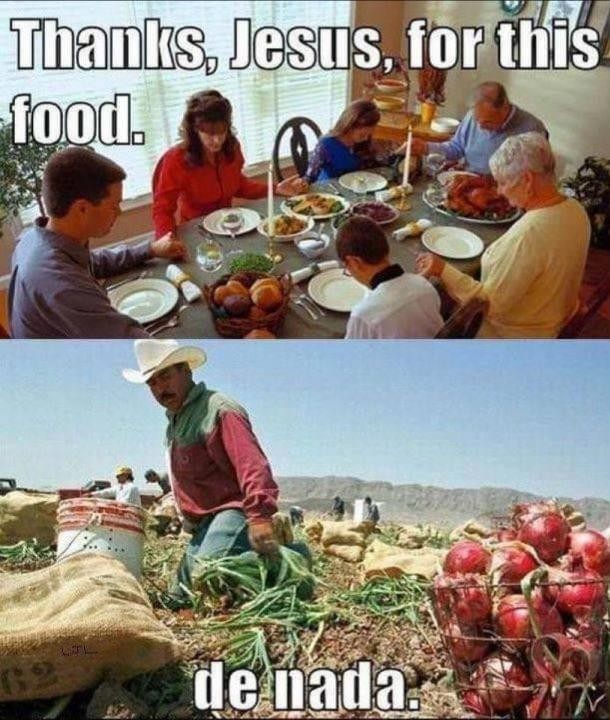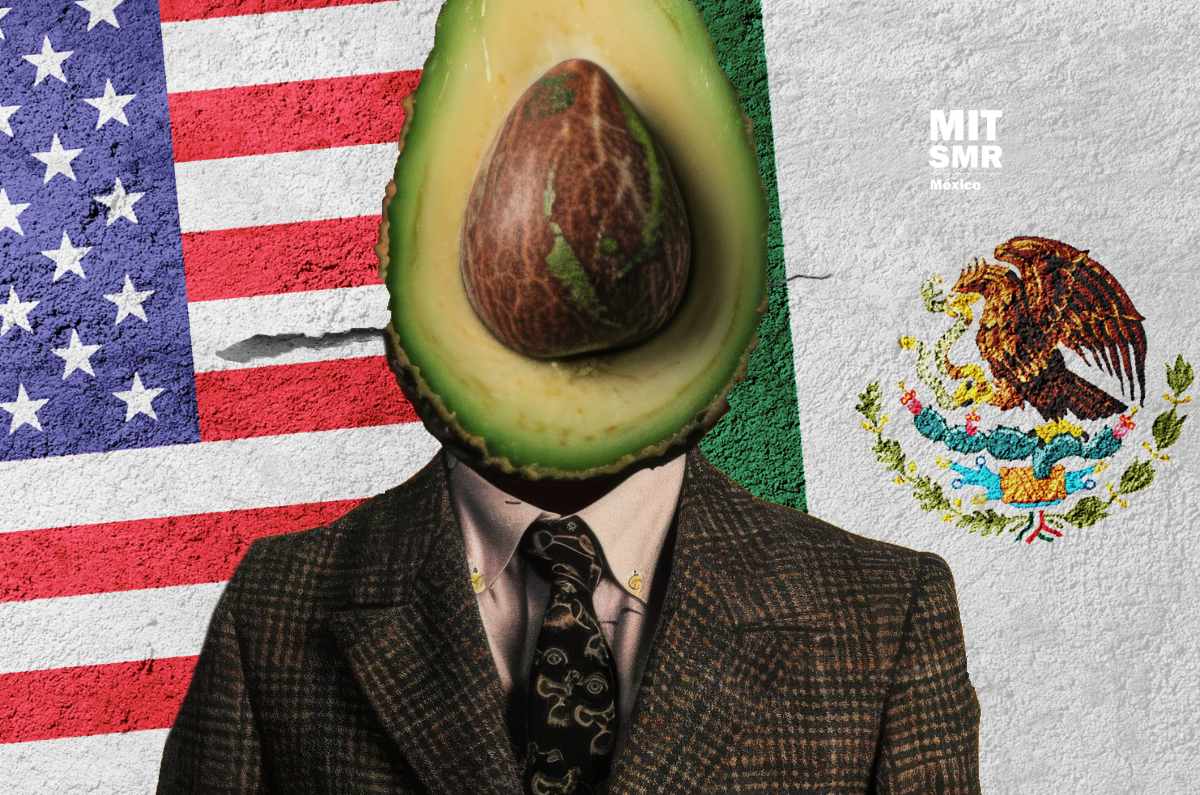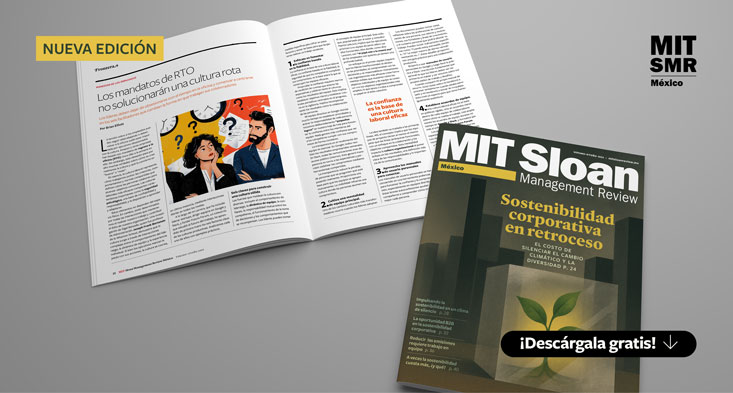The real focus of Thursday’s U.S. presidential debate should be on the growing economic and cultural ties, and how both countries can benefit from globalization. But sadly, that won’t be the case. We’ll be lucky if they mention avocados.
The first of only two U.S. presidential debates will take place this Thursday, and as outgoing Mexican President Andres Manuel Lopez Obrador stated in his daily morning press conference, “you don’t want to miss this one.”
Recognizing what’s at stake for his legacy and laying the tone and foundation for how America will interact with president-elect Claudia Sheinbaum, he argued against Donald Trump’s proposed militarization of the U.S.-Mexico border, and even went as far as asking that the topic of immigrationnot be brought up by either candidate.
He insisted that any blame from Biden or Trump towards his government is false and motivated by political gain. He was correct in stating that there has been a reduction in border crossings. Last month, the Biden Administration applauded the Mexican government’s efforts to help address the surge.
What he fails to understand is that this topic is a top priority for both Biden and Trump because the American electorate has made it so.
Trump is not going to stop his fearmongering approach to border security, and Biden is no friend to Mexico as demonstrated by his recent executive order executive order that limits crossings and seals the border to most asylum seekers – causing hundreds of thousands of people to wait in Mexico for a hearing to their asylum cases.
Immigration and border security are unavoidable topics. Any failure to address them by Biden or Trump will be perceived as a sign of weakness. They both need to demonstrate a strong stance on border security, and Lopez Obrador knows that it’s a topic in which Mexico (or Sheinbaum) can’t win.
Mexico, the Political Piñata: Claudia Sheinbaum’s America Problem
All politics are local
Yes, Mexico will be largely discussed within the context of immigration, but the fact that Mexico has surpassed China, Canada and European Union as the United States’ number one trading partner cannot be ignored.
In 2023, the U.S. traded $798 billion with Mexico, importing more than $427 billion in goods such as medical equipment, electronics, auto parts, and agricultural products. This is a significant lead comparted to its closest competitors, Canada with $450 billion and China with $322 billion.
The correlation between both economies is only growing and there is no sign of stopping. There’s a saying that “all politics are local”, referring to voter’s interest in an issue based on how it impacts their everyday lives.
Guacamole lovers got a taste of it two weeks ago when the U.S. announced that it would suspend the inspections and import of avocados and mangos from the Michoacán region due to security issues with the agricultural inspectors.
This cost Mexican producers more than $52 million a week, it increased the cost of avocados to more than $3 per unit, and it caused a near frenzy for avocados because media outlets considered it an important consumer story – all politics are local.
A meme that usually becomes popular around Thanksgiving states that “you should thank Jesus for your meal today”, with the image of Jesus (a Latino immigrant) picking crops in the fields.
It illustrates the point that Immigrants help keep the cost of agricultural products low. But this instance was very different, it illustrated the negative economic consequences of interfering with the production of a valuable good with high consumer relevance.
It also served as a preview of the potential dangers and quick downfalls that U.S. consumers can face if American industry paves the way for “nearshoring”.
Won’t you be my neighbor?
Sharing a border with the United States can be both a blessing and a curse. As former Mexican President Porfirio Diaz once said:
“My poor Mexico, so far away from God, and so close to the United States.”
That was over 100 years ago, but in today’s economic climate and in Mexico’s current state of economic affairs, it’s a good thing to be neighbors. Just ask Tesla, which invested $4.5 billion in the initial phase of a proposed $10 billion facility in the state of Nuevo Leon last year with great recognition and support from the Mexican government.
“Nearshoring” was THE buzz phrase for all the candidates in the Mexican presidential election. They all were in favor of it, they all touted it as key to long-term economic growth, and they all agreed that working to solidify the economic ties between both countries is a top priority. But what exactly is “nearshoring” and why is it so important to Mexico?
“Nearshoring” refers to the concept of establishing a production base that is closer to the core consumer base, reducing logistics and transportation costs. The fact that all the candidates aligned on “nearshoring” means that it’s coming.
It was unwritten confirmation that America wants this, that the economic trend machine is gearing-up, and that the revision of the United States Mexico Canda Agreement (USMCA) – the predecessor of NAFTA – will include new provision to help facilitate it for the foreseeable future. What this also indicates is that Mexico (and Latin American through Mexico) is the consumer base of the future, and it will help bring big profits to American industry.
This is great news for Mexico, it means jobs, economic investment, and strengthening the growth of the middle class. Prior to the election, president-elect Sheinbaum stated that “trade and commerce between the U.S. and Mexico is fundamental” and even encouraged American companies to establish operations centers in Mexico.
But only a day after her election she changed her position, stating that “Mexico needs to weigh its options for foreign investment”, and the markets didn’t react well to that. In fact, the Mexican peso has been on a rollercoaster ride since her election.
Peso recupera terreno tras volatilidad por resultados en elecciones
America first?
It’s unfortunate that neither Biden nor Trump will go into the details of the interrelation of the U.S. and Mexican economies. “Nearshoring” presents a real challenge for both candidate’s narratives.
Trump has publicly stated that he intends to create favorable conditions for American industries that support him and his agenda.
They have signaled that they want nearshoring and that they want Mexico as a destination. That really bends his narrative of America first, that American workers should be the first to reap the benefits of a global economy.
Imagine having to go from “they don’t send us their best”, and “bad hombres”, to “great workers”, and “making us lots of money.”
Biden on the other hand is in a lose-lose situation with this topic. His organized labor base will not want to see a new version of NAFTA-like conditions in which manufacturing and technology-based jobs leave to Mexico.
Mexico deserves much more than just being a footnote in the immigration debate. The real focus of Thursday’s U.S. presidential debate should be on the growing economic and cultural ties, and how both countries can benefit from globalization. But sadly, that won’t be the case. We’ll be lucky if they mention avocados.

George I. Gonzalez
Fundador de la firma Complex Made Simple. Experto en comunicaciones de política pública y comentarista Fundador de Complex Made Simple y experto en comunicaciones politicas y corporativas. Originario de CDMX. Fue designado de la Casa Blanca y subsecretario de prensa de desarrollo urbano y vivienda. También fue gerente de comunicaciones de política pública de Facebook en Washington D.C.y recibe contenido exclusivo







